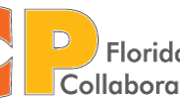Collaborative Law Featured in Pensacola News Journal
Thanks to the efforts of dedicated family law attorneys, mental health professionals, and financial professionals, collaborative law is spreading throughout Florida, including in Pensacola.
Collaborative law, also referred to as collaborative divorce, collaborative practice, and collaborative process, is a form of private dispute resolution. In collaborative law, each party is represented by his or her own attorney, and the lawyers are there solely to help the parties reach an agreement. The concept behind collaborative divorce is that most people want to move on with their lives as quickly and painlessly as possible without messing up their kids.

The Pensacola News Journal recently ran an article featuring collaborative practice. You can find excerpts from the article, titled “West Coast Collaborative Law wants to make divorces friendlier,” below:
A group of Panhandle lawyers has started a nonprofit that aims to reduce the cost and emotional turmoil of divorces.
West Florida Collaborative Law has only been in existence for a few months, but Milton lawyer John Susko said the group already has more than a dozen attorneys, as well as financial and mental health professionals, who are helping grow the program.
The idea behind collaborative family law is that instead of spending time and money in courtrooms, couples talk out their divorce through mediation and back-and-forth discussion, Susko said.
It’s not a new idea — collaborative law has been around in other states for decades — but Florida only officially recognized the process by passing a bill in last year’s legislative session.
“(Traditional litigation) is not a pleasant situation,” Susko said. “I don’t think that family law cases were ever meant to be decided by men and women in black robes.”
Collaborative family law saves money by using a mutual financial professional and time because there’s no need to wait for hearings, court dates and attorney filings, Susko said.
For the lawyers, however, the process requires a shift in thought, according to Amy Kicklighter Waddell, an attorney with Waddell & Waddell.
“It’s inherent with litigation you have strategies as an attorney that if you’re going to court you don’t want the other side to know about,” she said.
Having just finished her first local collaborative law case, Waddell said shifting from the “us vs. them” mentality an attorney faces in court was an adjustment, but it allowed more forthright discussion.
“I’ve never been able to openly discuss my legal arguments, but with this, there was no reason for me to hide the ball because it wasn’t going to court,” she said. “I could say this issue is very hot for my client, it’s very emotional and let’s keep that in mind when we go in here and come up with a plan.”
Whether you are in Pensacola or elsewhere in Florida, you can make life easier in your divorce or other family law matters via a collaborative process.
Adam B. Cordover is a leading collaborative attorney. He trains attorneys, mental health professionals, and financial professionals how to help families via the collaborative process. Adam represents clients throughout the state of Florida.



